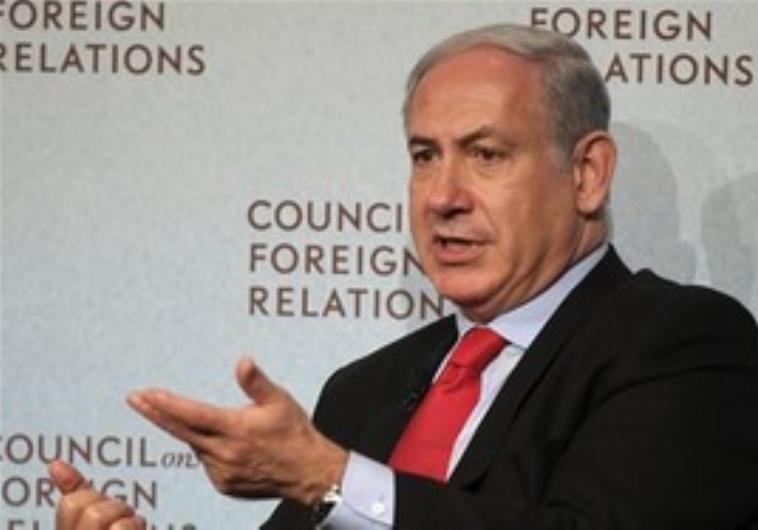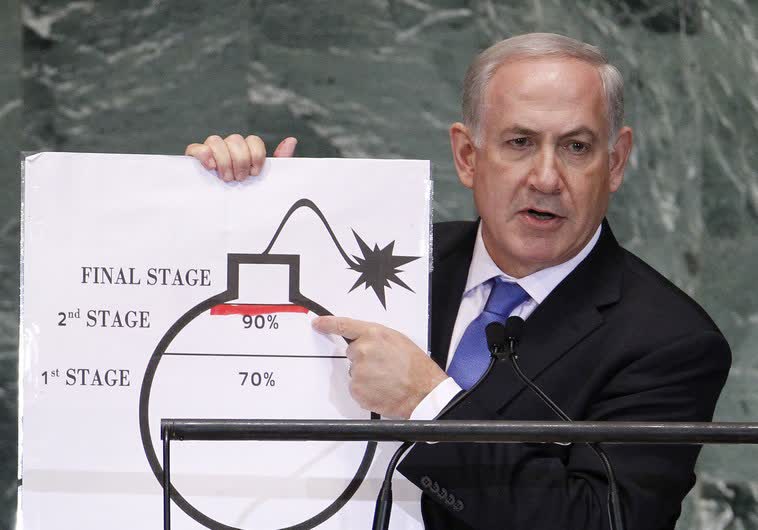It is very difficult to assess where we are regarding negotiations to end the war in Gaza and to bring the hostages home. In September, two Hamas leaders from the Hamas politburo, one of them a member of the Hamas negotiating team, conveyed to me that they were prepared to agree to the “Three Weeks Deal” that I proposed during which time the war would end, all 101 hostages would be returned to Israel in exchange for an agreed number and list of Palestinian prisoners who would be freed from Israeli prisons, Israel would withdraw completely from Gaza and Hamas would no longer rule Gaza – the governance of Gaza would be given to a civilian Palestinian professional technocratic council. The Israeli negotiators responded that the Israeli government and the Prime Minister refused to end the war and Hamas responded that they would not agree to any deal that did not end the war. The Qataris and the Egyptians told me that Hamas demanded a commitment and international guarantees that if they agreed to the format of the Biden-Netanyahu proposal from May, or the July version of the proposal which began the process with a 42-day ceasefire, they would agree to a partial withdrawal of Israeli forces, if in stage two there were guarantees to end the war. According to the Qataris and the Egyptians, Israel refused to give those guarantees and the Israeli side added additional conditions which substantively changed the original proposal. All of this happened before Yahya Sinwar was killed.
Today, no one knows for sure that if the Hamas leadership outside of Gaza agrees to anything, the remaining Hamas leaders in Gaza have the ability or the willingness to implement the agreement. Since the killing of Sinwar, no one knows if Hamas is willing to give up governance over Gaza or to end the war. Egypt has proposed a number of new ideas, such as releasing a few hostages at the beginning of a ceasefire, mostly, I believe to determine if any agreement made by Hamas leaders outside could be implemented by the Hamas leaders inside of Gaza. The Egyptians have also tried to get Fatah and Hamas to agree to a government of consensus for Gaza which is not the Palestinian Authority and not Hamas. But the bottom line on the negotiations between Fatah and Hamas is that neither side is willing to allow the other side to rule Gaza and the Egyptian proposal is believed by both sides to empower the other side. It seems like just another attempt at failed Palestinian unity tried so many times before. The only path towards Palestinian unity will be the next time democratic elections can be held after there is stability and security within Palestine.
The Hamas leadership, as I hear from Palestinian sources, is not only scattered in different locales today, there are also division within the leadership on how to proceed. One issue of agreement among all of the Hamas leaders outside of Gaza seems to be that they all want the war to end. That seems to be the number one priority, but for Hamas, ending the war means a complete withdrawal of Israeli forces from Gaza. For Hamas, ending the war with Israeli forces remaining in Gaza does not end the war at all. It also provides endless targets for armed insurgents in Gaza to shoot and try to kill. The Qataris have now renewed their mediation efforts while most of the Hamas leaders have left Qatar. Many Hamas leaders have gone to Turkey, but from what I hear, they are afraid of Israeli assassinations inside of Turkey. The Qataris, according to various sources do not want all of the Hamas leaders to return to Doha. Some Hamas leaders come and go to Cairo, but the Egyptians do not want to Hamas leadership to be based there. In fact, Egypt very much wants the 160,000 Gazans who escaped to Egypt to find somewhere else to go. From what I hear from Gazans in Egypt, life in Egypt is very unsecure, living conditions are harsh, they cannot work, and they feel that for many Egyptians, they have overstayed their welcome. There are reports that Hamas leaders may find refuge in Malaysia and some reports have suggested Algeria as well. Israel tried to see if the Turkish intelligence would be willing to enter to the mediation efforts. My understanding is that they gave a negative answer to the Israeli request. So, the mediation efforts remain in Egypt and in Qatar. I visited Qatar and met with the Qataris negotiators and my impression was that they were sincere and were making real efforts to reach agreements. But both Egypt and Qatar were most frustrated by the lack of willingness of Netanyahu to end the war and without that, it seems impossible to get agreement from Hamas on the hostages.
My own mediation efforts on behalf of hostage families who requested from me to try to reach a deal with Hamas have hit a brick wall both as a result of my failure to move the “Three Weeks Deal” forward and also because I have been told by the Israeli side not to continue. I have been told that “there are a number of tracks being worked and we don’t want another one”. Hamas has no reason to negotiate with me or even to respond to me when they know that I cannot advance an agreement. My only desire is to help to end this horrific war and to bring the hostages home. The main reason why I have tried to help since the second day of the war is because over 18 years of negotiating with Hamas, I have developed contacts with eight senior Hamas leaders – all of whom are outside of Gaza today. I don’t have any contacts with the Hamas leaders in Gaza, and to the best of my knowledge all of the mediators have been dealing directly only with Hamas leaders outside of Gaza. I still firmly believe that there is no replacement for direct contact through back channels. I have proposed to the Israeli officials to authorize a direct back channel in which I would communicate with Hamas in the presence of the Israeli negotiators and I would take instructions from them and send and receive messages to Hamas in real time. This is what I did during the last five months of Gilad Shalit’s captivity in Gaza, after being in direct contact with Hamas leaders from one week after Shalit was abducted. During the years prior to October 7, I was communicating with Hamas directly and with the official Israeli team in charge of hostages and prisoners. I even was instructed to speak with Hamas from an office in the Ministry of Defense in Tel Aviv in the presence of the Israeli team. Over the years I have spoken to Hamas in the presence of Israeli Government Ministers, at their request, and even offered them to take the telephone – none of them ever agreed to speak directly with someone from Hamas.
There are reports that we are close to a deal. We have heard those reports repeatedly over the past year. I tend not to believe anything in the media about the negotiations. The parties use the media as part of the tactics of negotiations. It is difficult to be optimistic because in a very sober way, ending the war in Gaza and ensuring that this will be the last Israeli-Palestinian war is only really possible in the context of political steps towards the implementation of the two states solution. If the war ends and Gaza remains under blockade and the West Bank remains under harsh Israeli occupation and control, then we will perhaps have short break from the death and destruction but we will surely return to it sooner rather than later. We have seen very clearly that the military pressure does not rescue hostages, it kills them.
On the positive side, the two-states solution has re-emerged from this war as well as the possibilities for a regional framework for stability, security, and economic development. That is the approach that the Trump administration is likely to advance. It is also what the Saudis and the Europeans are working on. The Saudis in cooperation with the European Union and Norway have launched the Global Alliance for the Implementation of the Two States Solution. Some ninety countries have joined that alliance. Israel has been invited to join but has not shown up to any of the meetings – the last one on November 28 in Brussels. The idea of the Alliance is that enough talking has been done and enough declarations, now it is the responsibility of government around the world to take concrete steps that will make the two states solution real. That is a very positive change of attitude and positions by the majority of the international community.
It is quite clear that emerging from this war, we Israelis and Palestinians have a lot of work to do to bring new leaders to our people. There is no positive future for Israel if Netanyahu continues to be the Prime Minister. There is no positive future for Palestine if Abbas and Hamas remain the leaders of the Palestinian people. We need new leaders who have had enough of wars and understand that the military solutions are not solutions at all. There are only political solutions and the only real viable political solution remains the two-states solution. The failures to reach that solution until now have lots of reasons and the changing realities on the ground make it more difficult to reach it than before 30 years. That does not change the fact that both sides have the same right to the same rights. There is no one side which is superior to the other or has more rights to be here. In our reality with seven million Israeli Jews and seven million Palestinian Arabs living on the land between the River and the Sea, there is no way for both sides to have a territorial expression of their identity without dividing the land into two states. The acceptable formula has been on the basis of the 1967 lines where Jewish Jerusalem is the capital of Israel, and Palestinian Jerusalem is the capital of Palestine. The Old City of Jerusalem must have no exclusive sovereignty, and the solution agreed to by former Israeli Prime Minister Ehud Olmert and former Palestinian Foreign Minister Nasser Alkidwa is for the Old City of Jerusalem to be under a Trusteeship of five countries of which Israel and Palestine will be two of them.
Now we, the people of Israel and the people of Palestine must create the Israeli-Palestinian Alliance for the Implementation of the Two States solution – that is what my Palestinian partner, Samer Sinijlawi and I are doing.


